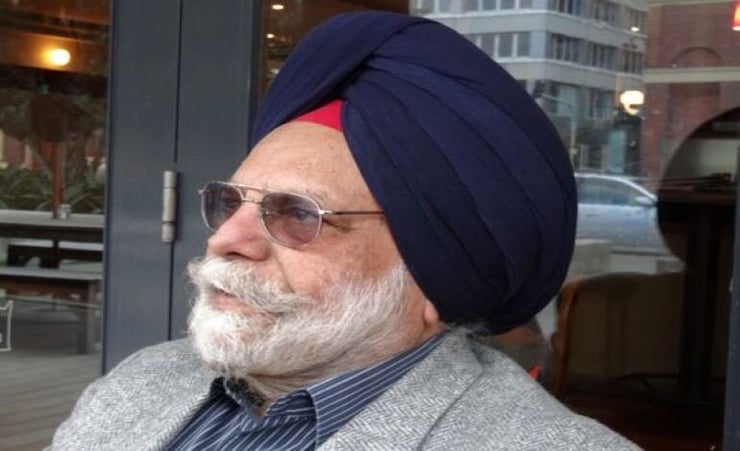No sympathy for Khalistan supporters: Prof Kirpal Singh

India has expressed concern over the violence unleashed on members of the Indian community by pro-Khalistan elements in Australia in recent days. Hindu places of worship have also been the targets of attack.
Prof Kirpal Singh, noted academic and author of the book on Partition titled “Toon Mera Rakha Sabni Thaein,”(God – You are my Saviour everywhere), weighs in with his views on the Khalistan separatist movement and also dwells on his experiences in the aftermath of the Partition of India in 1947.
Singh recalls the horrors he witnessed as a child during the Partition era.
Singh has vivid memories of growing up on the outskirts of Rawalpindi in Pakistan and moving with his mother and four siblings to the Waha camp, near Panja Sahib, to live with his grand uncle, a former soldier with the Indian British Army. The family, fleeing the violence unleashed on Sikhs and Hindus living in Pakistan, sought to cross the border to India by train.
He recalls seeing a convoy of military vehicles packed with dead Sikh and Hindu soldiers.
“I saw a dead Sikh soldier with a bullet wound in his stomach , and a young Sikh woman with a dead child on her lap.”
The corpses were unloaded and set on fire in a mass cremation. Singh’s elderly “Mamaji” prayed as the bodies burned.
When Singh and his family finally boarded the train for Amritsar on the Indian side of the border, he heaved a sigh of relief. But greater horror lay in wait.
“It was at Attari railway station that I witnessed the most dreadful and horrifying experience of my life,” Singh reminisces. “A train full of Muslims from all over India was waiting for clearance to cross the border to a destination in Pakistan. Suddenly, I heard cries and saw men, women and children fleeing for their lives on the opposite platform. I saw hooligans with swords chasing and slaughtering those people. The bodies were heaped and lit in a huge bonfire. That memory has never faded.”
When his train reached Kurukshetra, Singh and his family moved to a refugee camp where his younger sister died of fever. Singh’s mother had the child in her lap at the time. His sister was buried in a nearby field.
On 30 January 1948, a tragedy of national proportions struck as Mahatma Gandhi fell to an assassin’s bullet.
“There was a rumour that Gandhi’s assassin was a Sikh,” Singh recalls. The family stayed indoors till the rumour died down.
As a result of his childhood trauma during Partition, Singh is a strong votary of disarmament. “I love New Zealand, perhaps the only country where the Constitution forbids nuclear arms and policemen are not allowed to carry firearms,” Singh says.
Singh’s message to the pro-Khalistan elements is clear.
“I have no sympathy for those who ask for a Khalistan in India. The Sikh Gurus belonged to India and India belongs to the Sikh Gurus.”





